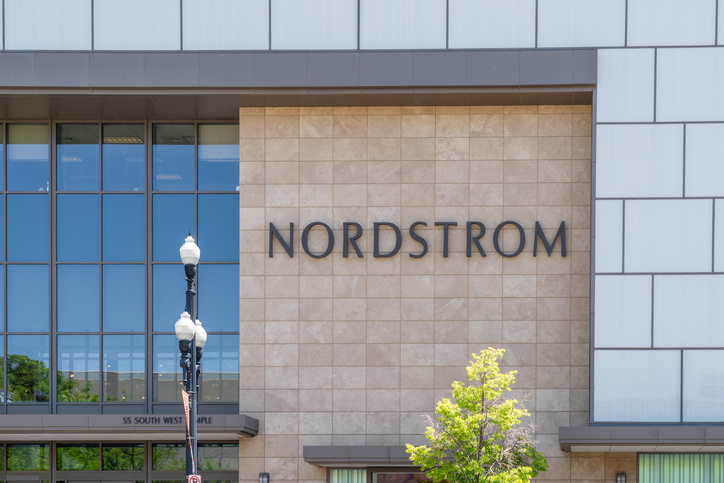Nordstrom Returns to Private Ownership in $6.25 Billion Family-Led Deal
Nordstrom, one of the most recognizable names in luxury retail, is embarking on a transformative chapter in its 123-year history. The company announced plans to go private in a $6.25 billion transaction led by its founding family, along with the Mexican retail giant El Puerto de Liverpool. This deal, set to close in early 2025, marks a significant shift in Nordstrom’s strategy as it grapples with evolving consumer preferences and an increasingly competitive retail landscape.
Details of the Deal
Under the terms of the agreement, Nordstrom’s shareholders will receive $24.25 per share in cash, a premium of 42% compared to the stock’s value on March 18, 2024, when speculation about a buyout first began. This valuation, though lower than Nordstrom's pre-pandemic peak, represents an opportunity for the company to pivot toward long-term goals without the pressures of public market performance.
The deal also sees Nordstrom partnering with El Puerto de Liverpool, a key collaborator that brings extensive retail expertise and financial backing. Together, they aim to revitalize Nordstrom's brand and ensure its relevance in the rapidly shifting retail landscape.
Erik Nordstrom, CEO of Nordstrom, expressed optimism about the transition, stating:
“For more than a century, Nordstrom has adhered to the core principle of helping customers feel confident and look their best. Today signifies an exciting new chapter for the business. On behalf of my family, we are eager to collaborate with our teams to ensure Nordstrom continues to thrive well into the future.”
A Family Legacy Reclaimed
The Nordstrom family has long been a cornerstone of the company’s identity. Founded in 1901 as a small shoe store in Seattle, Washington, Nordstrom grew into a premier name in high-end retail under family stewardship. The family’s previous attempt to take the company private in 2018 at $50 per share was unsuccessful, as the board rejected the offer. This new deal underscores their continued commitment to the brand despite evolving market challenges.
Taking the company private grants the Nordstrom family more control to implement strategic initiatives without the scrutiny of shareholders. It also signals a return to the company’s roots as a family-run enterprise dedicated to providing exceptional customer experiences.
Navigating Retail Challenges
Nordstrom’s decision to go private comes as the broader retail sector faces significant upheaval. Like many department store chains, Nordstrom has struggled to maintain market share amid declining foot traffic and the rise of e-commerce giants like Amazon.
Key Challenges Nordstrom Faces
- Shifting Consumer Preferences: Modern consumers increasingly favor online shopping and subscription services over traditional brick-and-mortar experiences. Competitors like Rent the Runway and Nuuly have captured the attention of younger demographics with innovative rental and resale models.
- Luxury Competition: Mergers among luxury retailers, such as the Saks Fifth Avenue and Neiman Marcus merger announced in July 2024, have intensified competition. These alliances strengthen negotiating power with high-end brands, potentially putting Nordstrom at a disadvantage.
- Economic Pressures: Reduced discretionary spending amid global economic uncertainty has impacted Nordstrom’s sales. Consumers are opting for affordable options, creating headwinds for premium retailers.
Related: Madkour Group to Invest $200M in Mauritania Natural Gas Power Plant
El Puerto de Liverpool: A Strategic Partner
El Puerto de Liverpool, Mexico's largest department store chain, brings valuable expertise and resources to the table. The partnership reflects a strategic move to integrate international retail insights and strengthen Nordstrom’s operations. Liverpool’s investment will enable Nordstrom to explore innovative technologies, expand its omnichannel presence, and enhance customer engagement.
Future Investments and Growth Opportunities
With the pressures of quarterly earnings reports lifted, Nordstrom will have the flexibility to focus on long-term initiatives. Key areas of focus are expected to include:
- Omnichannel Retail: Expanding the integration of online and in-store experiences to meet consumer expectations for convenience and personalization.
- Sustainability: Introducing sustainable practices and product lines to attract eco-conscious shoppers and align with global trends in responsible retailing.
- Customer Experience: Enhancing in-store services, such as personal styling and curated luxury experiences, to maintain Nordstrom’s reputation for exceptional service.
- Technology Investments: Leveraging data analytics, artificial intelligence, and other technologies to streamline operations and better understand customer behavior.
Looking Ahead
The decision to go private marks a critical turning point for Nordstrom. By removing the constraints of public ownership, the company can refocus its efforts on innovation and maintaining its position as a leader in luxury retail. The involvement of the Nordstrom family and El Puerto de Liverpool signals a renewed commitment to the brand’s legacy and future growth.
While challenges remain, this new chapter provides an opportunity for Nordstrom to redefine itself and reclaim its place in a rapidly evolving industry. With the right strategies and investments, the company is well-positioned to navigate the complexities of the modern retail environment and emerge stronger than ever.









